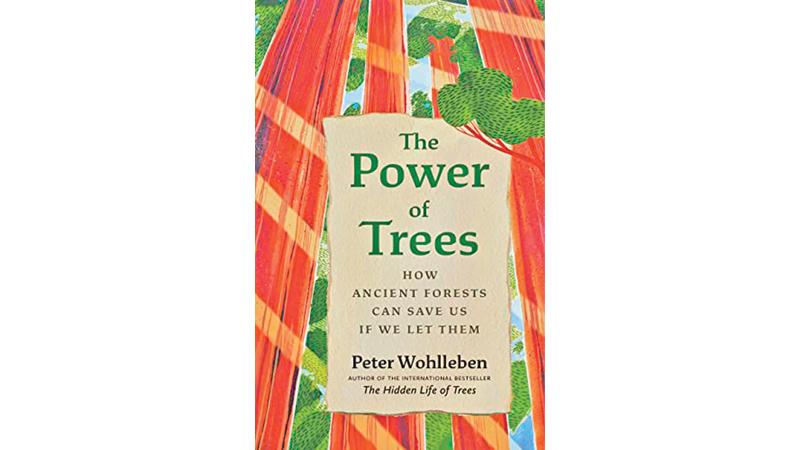
In his latest book, the forester and author argues that narrow perspectives are ignoring the vast beneficial effects that forests – especially ancient forests – generate for global temperature management
Next time you’re walking through a park on a hot day, take a moment to sit under a big old tree. While you’re reclining under the shady boughs, you’ll find that the temperature is something like 2C cooler than if you were beneath a parasol.
Why? Because a mature deciduous tree releases a massive amount of water from its leaves, which cools the surrounding air as it evaporates, just like the way sweating cools our bodies down.
So, a single tree influences the microclimate around it – but what about an entire forest? That’s the question explored in The Power of Trees by German forester Peter Wohlleben, whose 2015 book The Hidden Life of Trees was a surprise international bestseller.
Temperature difference
By way of an answer, Wohlleben whisks us to Berlin, where the average noon temperature in summer over a 15-year period was a stifling 33C. But travel a little further, to the bosky woods around the German capital, and the temperature drops sharply. This is because, we’re told, “beeches and oaks act like bodies of water”. The trees “cool the landscape so much that the temperature difference between a city like Berlin and an ancient woodland is about 15C.”
Interestingly, homogenous pine plantations – of the kind being planted as “carbon sinks” – end up being 8C warmer on average than deciduous woodlands. As Wohllenben tartly observes: “The results make it clear that these dismal monocultures can never replace real forests.”
But as the book explains, ancient glades don’t just cool the air around them; they also play an outsize role in our planet’s water cycle. A single beech tree can breathe out 500 litres of water a day, which creates a local low-pressure area that air is drawn into. “Forests suck fresh air from the oceans – and they do this over great distances,” said Wohlleben.
This damp oceanic air rises above forests, cools down, and then rains its moisture down on the trees. This means that chopping down forests has a profound – but sadly not widely recognised – impact on global rainfall. “If forests are cut down and replaced with, say, grass or croplands, rainfall could decrease by 90 percent,” the author said.
This isn’t idle speculation. Droughts have been increasing in the Amazon as the coastal rainforest has been heartbreakingly logged and razed.
Wohlleben writes in a sober style, but he can’t hide his anger with the way people today – including many environmentalists – now “think of trees as little more than biological storage units for carbon dioxide either while they are alive or, better yet, when they are dead”. This hellishly narrow perspective ignores the vast beneficial effects that forests – especially ancient forests – generate for global temperature management.
Feeding “kids
Although the main thrust of the book is about the interplay between forests and the climate emergency, there are some fascinating detours along the way. I never knew, for example, that some trees can identify which little seedlings growing around them are their own offspring, and use their roots to feed their “kids” with a sugary solution. And I couldn’t help but be enthralled by the account of the ways trees learn from drought and other environmental shocks, and then behave very differently to trees that haven’t been through the same stresses.
This book is wise and thought-provoking, even if at times the prose is as wooden as a lumberjack’s CV. Wohlleben reveals how we’re in the grip of an egomaniacal conceit that humans are somehow smarter than nature. As a result, too many politicians think the best approach to the environmental crisis is even more micromanagement and human control.
A better idea would be to trust nature, giving the Earth’s complex ecosystems the space and time they need to heal. As the author drily concludes: “In view of the challenges we now face with climate change, more humility would be a fine thing.”
– Daily Mail.uk
